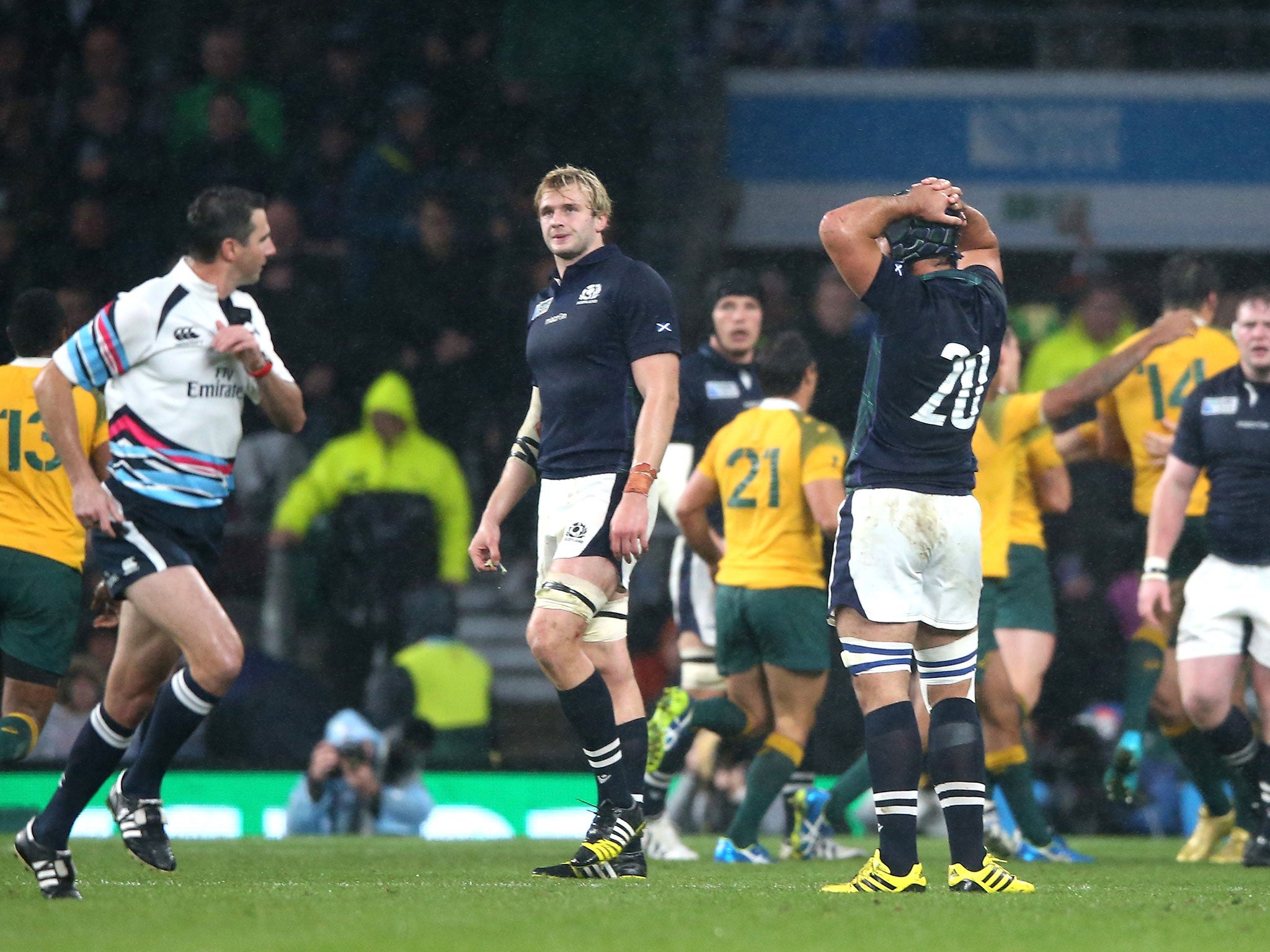Craig Joubert was right: Why Scotland can't complain about RWC decision
Joubert did not go to the TMO over an offside call because World Rugby laws prevent him from doing so, but the sucker punch came in that it wasn't offside at all

Your support helps us to tell the story
From reproductive rights to climate change to Big Tech, The Independent is on the ground when the story is developing. Whether it's investigating the financials of Elon Musk's pro-Trump PAC or producing our latest documentary, 'The A Word', which shines a light on the American women fighting for reproductive rights, we know how important it is to parse out the facts from the messaging.
At such a critical moment in US history, we need reporters on the ground. Your donation allows us to keep sending journalists to speak to both sides of the story.
The Independent is trusted by Americans across the entire political spectrum. And unlike many other quality news outlets, we choose not to lock Americans out of our reporting and analysis with paywalls. We believe quality journalism should be available to everyone, paid for by those who can afford it.
Your support makes all the difference.Craig Joubert has become the most talked about figure of the Rugby World Cup for all the wrong reasons after his decision to award Australia a last-minute penalty in their quarter-final clash on Sunday cost Scotland a place in the semi-finals.
South African Joubert awarded the Wallabies a late penalty with the scores 34-32 in the Scots’ favour after he deemed John Hardie to be in an offside position after the ball bounced forward off his team-mate Josh Strauss.
However, the admission from Australian scrum-half Nick Phipps that he was going for the ball intentionally meant that Hardie could not have been ruled accidentally offside, and Bernard Foley kicked the resulting penalty to send his side through to the semi-finals at the expense of Scotland. Joubert appeared to realise the error of his ways immediately, as he viewed the replays on the big screen while Foley lined up the kick before sprinting off the pitch as soon as he blew the final whistle.
But while Joubert can be accused of making the wrong decision, he cannot be criticised for failing to review the decision with the Television Match Official – because he isn’t allowed to.
World Rugby stated earlier in the tournament: “The TMO can be used only in the following circumstances:
• Determining the grounding of the ball in-goal for a try or touchdown and/or whether players were in touch or touch in goal before grounding.
• Determining whether a kick at goal has been successful.
• Confirm if an infringement has occurred in the build-up to a try or prevention of a try (infringement must be within two phases of the try or touchdown).
• Considering acts of possible foul play.”
The statement from World Rugby came after a large length of stoppages came during the opening match between England and Fiji, while similar followed the next day in the Pool D encounter between France and Italy – also refereed by Joubert.
Chairman of the World Rugby Match Officials Selection Committee John Jeffrey added last month: “The TMO is a part of the match official team and the fantastic technology available is a tool to be used in the making of key decisions during matches. The TMO process is used to make sure the correct calls are made to protect the integrity of the game.
“It’s worth noting that just 28 per cent of stoppage time in the opening match of this Rugby World Cup was taken up by the TMO process but we are committed to reducing that time further while not compromising on accuracy. As such, all involved – referees, TMOs, technicians and television producers – are working together to achieve that.”
So was the right decision achieved on Sunday? No, as play should have continued given the ball comes back off Phipps before finding its way into the arms of replacement prop Jon Welsh as the video below shows.
Phipps even admitted afterwards that he went for the ball. "I think everyone was trying to win the ball. We were all going for it," Phipps said.
But once the decision was made Joubert was unable to review his call, and the rest as they say is history.

Joubert has already come under huge scrutiny at this World Cup after he awarded a staggering 34 penalties during the France v Italy match, while his inability to rule over the breakdown in the Pool A decider between Australia and Wales was also highlighted and gave the Wallabies a warning of what was to come.
Join our commenting forum
Join thought-provoking conversations, follow other Independent readers and see their replies
Comments